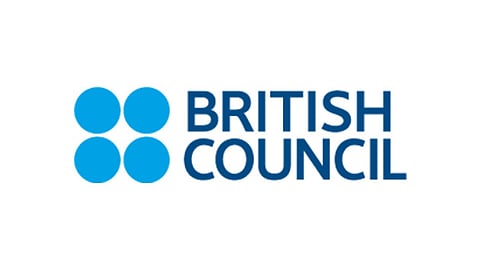
- NEWS
- the EDIT
- COMMENTARY
- BUSINESS
- LIFE
- SHOW
- ACTION
- GLOBAL GOALS
- SNAPS
- DYARYO TIRADA
- MORE

The British Council has released a new study exploring the evolution of the English language through 100 idioms, proverbs and phrases, launched Tuesday to coincide with World English Day.
Titled Phrase-ology, the collection sheds light on how English continues to evolve under the influence of global cultures, historical events and digital trends. It includes expressions dating back to Ancient Greece, as well as modern slang popularized on social media.
The research, led by computational linguistics expert Dr. Barbara McGillivray and Natural Language Processing specialist Iacopo Ghinassi, analyzed millions of online documents to examine the emergence and usage of phrases—from the traditional "breaking the ice" to Gen Z expressions like "ate and left no crumbs," meaning to do something flawlessly.
“Working on this collection, we had the chance to explore the deep historical roots of English expressions while applying modern computational techniques to trace their evolution,” McGillivray said in a statement.
The study categorizes phrases into eight themes, including Global English, Classic Evergreen, Generational, Pop Culture, Sports, Gen Z, Language of Belief, and Shakespeare. It highlights both enduring phrases like "kill two birds with one stone" and newer expressions such as "let them cook" and "main character energy."
Some idioms, like “spill the beans,” have existed for over a century, while more recent counterparts like “spill the tea” rose to prominence from African American and LGBTQ+ communities in the late 2010s, boosted by online platforms.
Historical reinvention is also explored, such as the phrase “all that glisters is not gold,” traced back to Middle English in 1229 and later adapted by William Shakespeare in The Merchant of Venice.
Generational shifts in language use were mapped by studying comments from different age groups across online platforms. While phrases like “pipe down” and “better late than never” are still widely used, newer terms such as “glow up” are more common among millennials and Gen Z. Others, like “keep it real,” remain cross-generational.
The study also revealed English’s global roots. Phrases such as “moment of truth,” derived from the Spanish hora de la verdad, and “long time no see,” which may stem from Chinese Pidgin English or early Western literature, reflect the language’s international evolution.
Mark Walker, director of English & Exams at the British Council, said the project highlights English’s role as a “global lingua franca.”
“This latest study into the evolution of English explores the phrases we use to express shared ideas and experiences,” Walker said. “It shows how much English is shaped by people around the world and how it continues to grow and adapt.”
The collection includes well-known and emerging expressions, from the Shakespearean “wearing one’s heart on one’s sleeve” to Gen Z slang like “no cap,” underscoring how English remains a dynamic and evolving language.
